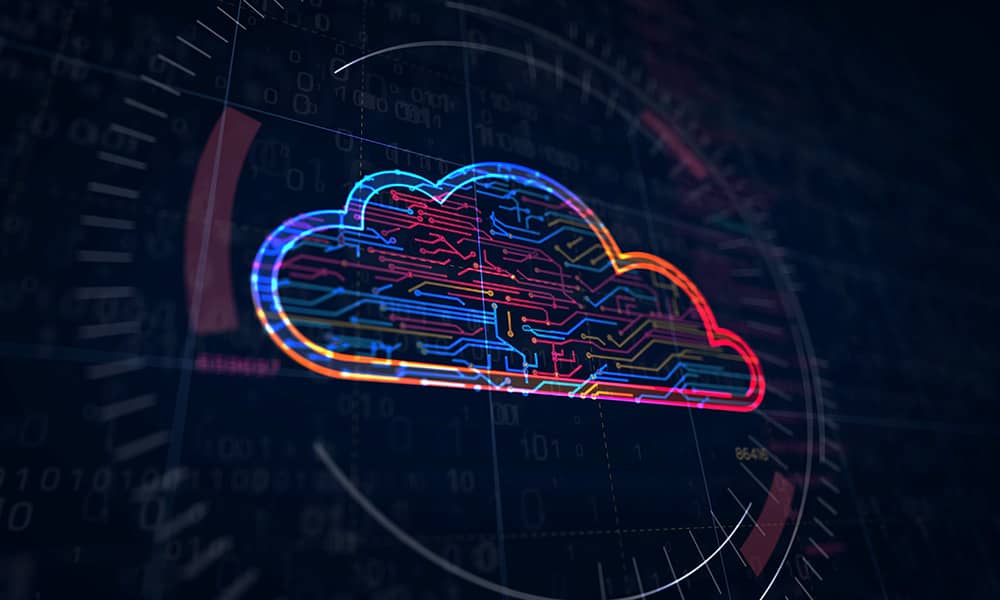The first notion that computers could be networked together to create a robust and efficient way to manage and share data was thought of in the early ’60s. However, it wasn’t until 2006 when the term “cloud computing” was coined by the then CEO of Google Eric Schmidt. A short time later, Amazon released the Amazon Elastic Compute Cloud. Microsoft launched Azure in 2011 followed by Apple in 2012.
Today, cloud based computing has become a commonplace term. In fact, about 3.4 billion internet users enlist the services of cloud based computing.
But what is cloud computing?
Funny thing is if you ask 10 people, you’ll probably get 10 different answers! Think of it in terms of physical and spatial.
Physical computing is on-premises mainframes, hard drives, and data tape. These are physically located in generally one place — which was quite risky. Backing up your data is a cumbersome and oftentimes complex process that is pretty much out of date the minute the backup is completed. Duplicate backup tapes were often kept in a secure storage facility off-site in case of catastrophic events. Computers applications were more or less restricted to individual workstations due to the slow internet speeds and the high costs.
Spatial or Cloud computing has become popular in the last 15 years. As bandwidth speeds increased, and costs became more reasonable, businesses were no longer confined to running applications off of workstations. They could utilize the internet (or cloud) to store data and run applications—making computing from anywhere possible. Think about how your contacts on your Iphone are shared with your Ipad and MacBook or apps are shared across devices.
The cloud model utilizes economies of scale by enabling multiple organizations to share the same resources (servers, infrastructure, etc), then as a business needs access, they connect via the internet.
Side note: If you have an Apple device and aren’t using the iCloud, call us! We can make your lives much easier.
What makes the cloud so appealing?
The cloud removed the limitations of a business having to maintain large and expensive mainframes and internal servers. This freed up the possibilities for businesses to use the cloud computing concept for not only data storage but software use. The cloud also enables devices to communicate with one another so that one data source is and shared across multiple platforms. For instance with Microsoft Office 365, your contacts, calendars, emails, file folders, PowerPoint presentations are all stored in the cloud and you can access everything from your laptop, tablet, smartphone, or other shared devices (with the proper password and security settings).
Some common benefits to cloud computing.
Software as a Service (SaaS)- Companies no long need to install software on every device or even manage updates. The applications (software) actually reside on remote servers (cloud) rather than individual computers. So, if your office manager accidentally spills their coffee on their computer, you won’t lose your whole Quickbooks system because 99% of the information (and program) is in the cloud. Critical programs like Quickbooks, SalesForce, Google Drive, Adobe Creative Suite, Shopify are all considered Saas products.
How does a Cloud-based data service work?
Cloud storage is a scalable service. The more you need the more you purchase. Your IT Management partner, like Bit Perfection, can monitor and adjust your data needs making sure you pay for only what you need.
To begin, an account is set up for your business, then each workstation is linked to the the cloud account. Hard drive backups are uploaded (if deemed appropriate) to the cloud. Your Bit Perfection technician handles all of this for you. You and your technician can determine the frequency of your backup cycle and that’s it! You continue to use your workstation as you always did, but now everything is stored remotely in the cloud.
Security
That’s always a big question. How secure is the cloud? Is my data safe?
The answer is “Yes” it’s very safe. In fact, the chances of you losing your data to a breach is far less than you having a physical computer crashing and you losing everything on that hard drive.
Cloud-based data centers have some of the most sophisticated firewalls and security measures in place, not to mention multiple redundancies in their own server networks. They even have alternative physical locations where data is backed up in case the primary data center should go offline.
Interested in a cloud-based solution?
Bit Perfection can analyze your needs, and make recommendations for the right subscription and cloud configuration. Let us help you stay focussed on what’s important — your business.
